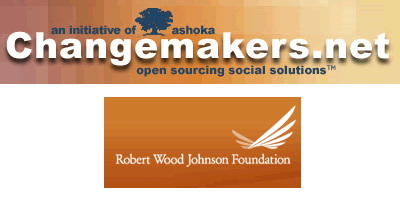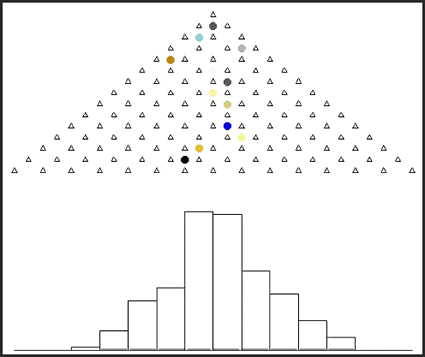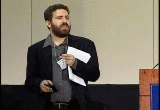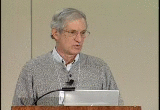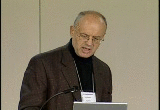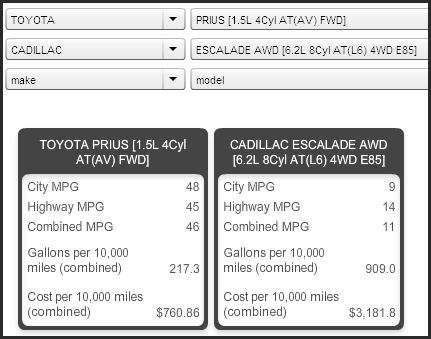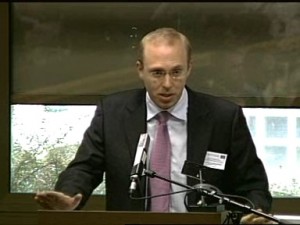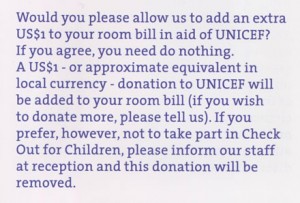POSTDOCTORAL OPPORTUNITIES IN BERLIN, BOULDER, AND NYC

If you are like most Decision Science News readers, you have a PhD or are fast on your way to earning one. It only follows that if you are like most Decision Science News readers, you are eligible to apply for a postdoc. Here are a few it’s still not too late to apply for, even on the last day of 2008.
Here’s one in Berlin:
Postdoctoral Fellowships and Visiting Graduate Fellowships in Cognition And Decision Making
The Center for Adaptive Behavior and Cognition at the Max Planck Institute for Human Development in Berlin, under the direction of Gerd Gigerenzer, is seeking applicants for up to 3 two-year Postdoctoral Fellowships (with the possibility of third year) and up to 2 one-year Visiting Graduate Fellowships beginning on or after September 1, 2009, but earlier or later start dates are possible. The Visiting Graduate Fellowships are intended for students currently enrolled in graduate programs.
Candidates should be interested in studying the cognitive mechanisms underlying bounded, social, and ecological rationality in real-world domains. Current and past researchers in our group have had training in psychology, cognitive science, economics, mathematics, biology, and computer science to name but a few. The Center provides excellent resources, including support staff and equipment for conducting experiments and computer simulations, generous travel support for conferences, and, most importantly, the time to think.
For more information about our group and other funding possibilities for graduate students please visit our homepage at www.mpib-berlin.mpg.de/en/forschung/abc/ . The working language of the center is English, and knowledge of German is not necessary for living in Berlin and enjoying the active life and cultural riches of this city. We strongly encourage applications from women, and members of minority groups. The Max Planck Society is committed to employing more disabled individuals and especially encourages them to apply.
Please submit applications (consisting of a cover letter describing research interests, curriculum vitae, up to five reprints, and 3 letters of recommendation) by January 10th, 2009 to ensure consideration. However, applications will be accepted until the positions are filled. The preferred method of submission is a single PDF file for the cover letter and CV, plus PDF copies of the reprints e-mailed to fellowships2009(at)mpib-berlin.mpg.de. Letters of recommendation and questions can be emailed to the same address. Under exceptional circumstances applications can be mailed to Ms. Wiebke Moeller, Center for Adaptive Behavior and Cognition, Max Planck Institute for Human Development, Lentzeallee 94, 14195 Berlin, Germany.
Here’s one at Colorado
University of Colorado
Leeds School of Business and Department of Psychology
Research Associate
The University of Colorado at Boulder anticipates hiring a research associate in a new interdisciplinary Center for Research on Consumer Financial Decision Making. Basic research in judgment and decision making, psychology, consumer research, and behavioral economics can inform our understanding of financial decisions such as choosing a mortgage, saving for retirement, decumulating savings, using credit cards, and paying for health care. The Center will conduct basic research and more applied work to inform public policy.
The research associate position would be for two-years, with a start date of August 1, 2009. The associate will conduct research with Professor John Lynch in the Leeds School of Business and Professor Leaf Van Boven in the Department of Psychology at the University of Colorado. Van Boven is co-Director of the Judgment, Emotion, Decision, and Intuition (JEDI) lab and Director of the Center for Research on Judgment and Policy. Lynch (coming to CU from Duke University) studies consumer decision-making. Please see these websites for descriptions of their ongoing research programs:
http://psych.colorado.edu/~vanboven/VanBoven/Home.html
http://faculty.fuqua.duke.edu/%7Ejglynch/bio/articles.htm
The ideal candidate would be an accomplished psychology PhD who has demonstrated research and teaching abilities and who is interested in seeking a faculty position in consumer research and marketing. Many leading Marketing departments hire researchers with Psychology PhDs whose work has implications for consumer behavior. They seek scholars who can publish in the top journals both in marketing / consumer research and allied basic disciplines such as social psychology, cognitive psychology, and judgment and decision making. Marketing departments also require that these scholars demonstrate that they can teach effectively in a business school setting.
This position is designed to help the scholar achieve these interdisciplinary goals. In conjunction with this research associate appointment, the appointee will also hold a 10% instructor appointment and will be expected to teach one undergraduate course per year in the Leeds School of Business under John Lynch’s supervision. The research associate will work in labs in both psychology and business; collaborate on research aimed at journals in both psychology and consumer research.
This position is open to candidates with behavioral research experience, data analysis and modeling skills, and training in judgment and decision making, social psychology, cognitive psychology, or a related discipline, who have recently earned a PhD or who are expecting their doctorate in by July 2009, on a topic relevant to the research programs of Lynch and Van Boven and to issues in financial decision making, broadly defined. Salary is competitive.
Applications (cover letter, vita, two letters of recommendation, pdfs of three research papers) should be submitted on line to https://www.jobsatcu.com/. Click on Search Postings and enter the job posting number 806125. In your cover letter, please describe your research expertise, data analysis skills, and computer skills.
Penultimately, Columbia
Center for Research on Environmental Decisions, Columbia University Post-Doctoral Researcher
The Center for Research on Environmental Decisions (CRED), is seeking an outstanding researcher for a Post-Doctoral Researcher position starting in September, 2009. CRED studies individual and group decision making under climate uncertainty and decision making in the face of environmental risk. We are an interdisciplinary center conducting laboratory and field research in the United States and around the world, involving collaboration between researchers (economists, anthropologists, psychologists, hydrologists, climate scientists, etc) and decision makers (water managers, farmers, etc.). CRED is affiliated with Columbia’s Earth Institute and the Institute for Social and Economic Research and Policy (ISERP). This appointment will be in Columbia’s Psychology Department. For more information please visit: www.cred.columbia.edu
The post-doctoral researcher will report to the center’s co-directors David H. Krantz and Elke U. Weber and will collaborate with other center researchers, post-docs, and graduate students across disciplines.
The post-doc will conduct research on temporal discounting of social goals. More specifically, this project looks at how discount rates vary across different goal categories (money, health, safely, belonging, status, well being of others, environment) in order to analyze the long-term benefits of public policies relating to health, safety, and environment. The incumbent will be responsible for planning and carrying out lab research, field studies, and analysis, including development of methods for measuring temporal discount factors, establishment of baseline effects, quantitative comparison of discount rates for a variety of social and economic goals; analyses of both general pattern of responses, as well as individual and cultural differences. He/She we will be expected to employ a combination of distribution games, social dilemmas, and hypothetical scenarios about real life social, monetary and environmental outcomes. Aside from basic research, our work is also concerned with practical applications in policy and other real-world decision contexts. In an effort to apply theory and findings to a real socio-temporal dilemma, the post-doc will work on an energy conservation field study.
Other duties include contribution to other ongoing center projects; grant proposal writing; preparation of and participation in CRED workshops; drafting reports and papers for publication.
Required qualifications:
* Ph.D. in psychology (social, cognitive), behavioral economics, decision sciences, or other relevant discipline.
* Familiarity with theory of decision making in social and group contexts.
* Strong interest in climate and/or environmental science.
* Skilled in the use of laboratory-based experiments involving multi-player decisions and familiarity with various forms of field work (survey and interview techniques)
* Experience working as a member of interdisciplinary teams.
* Excellent skills in use of statistical software package (SPSS, R, STATA, SAS, or equivalent)
* Proficiency in computer programming (experimental games and online surveys).
Preferred qualifications:
* Publications
* Grant writing experience
Duration: This is a one-year position with possibility of renewal for a
second year conditional on performance and funding.
Please submit applications electronically to Jenn Logg at: jl3371 at columbia.edu
Applications should include the following: Cover letter, CV, 2 publications or writing samples, 2 recommendation letters (to be submitted directly by references)
And yet another at Columbia, once held by yours truly …
Columbia University’s Center for the Decision Sciences (CDS) anticipates hiring a postdoctoral fellow to serve as Associate Director for a period of a minimum of one year, renewable for one or two more years, with a start date of June or July 2009.
The Associate Director will carry out research, administer the Center and run the CDS Online Virtual Laboratory server. S/he should have a reasonable level of computer sophistication.
The main responsibility will be to carry out research related to cognition and memory with an emphasis on decision making and the construction of preferences across the lifespan, under the supervision of Professors Eric Johnson, Elke Weber, and Yaakov Stern. This position is open to candidates with behavioral research experience, data analysis and modeling skills, and training in cognitive psychology or a related discipline, who have recently earned their PhD or who are expecting their doctorate in 2009, on a topic relevant to the psychology of decision making broadly defined. Training in neuropsychology as well as neuroscience and fMRI research would be a particularly valuable skill. Additionally experience with health- and cognitive function screening of older adults and experience with on-line research is also a plus.
The candidate should be comfortable running a Linux Web server as well as coding HTML and dynamic scripting languages such as PHP and JavaScript. Experience with SQL, databases, SAS and lightweight UNIX systems administration and security is very much recommended but not essential.
To apply, please send a CV, two letters of recommendation, reprints of published papers, and a cover letter describing your research interests. In your cover letter, please describe your research expertise, data analysis and modeling skills, neuropsychological and neuroscience skills, and computer skills (including any experience with online research).
Review of applications will start December 15 and continue until the position is filled. Electronic applications (all parts as attachments to a single email) should be submitted to Amy Krosch, ak2562 at columbia.edu.
 Subscribe to Decision Science News by Email (one email per week, easy unsubscribe)
Subscribe to Decision Science News by Email (one email per week, easy unsubscribe)


